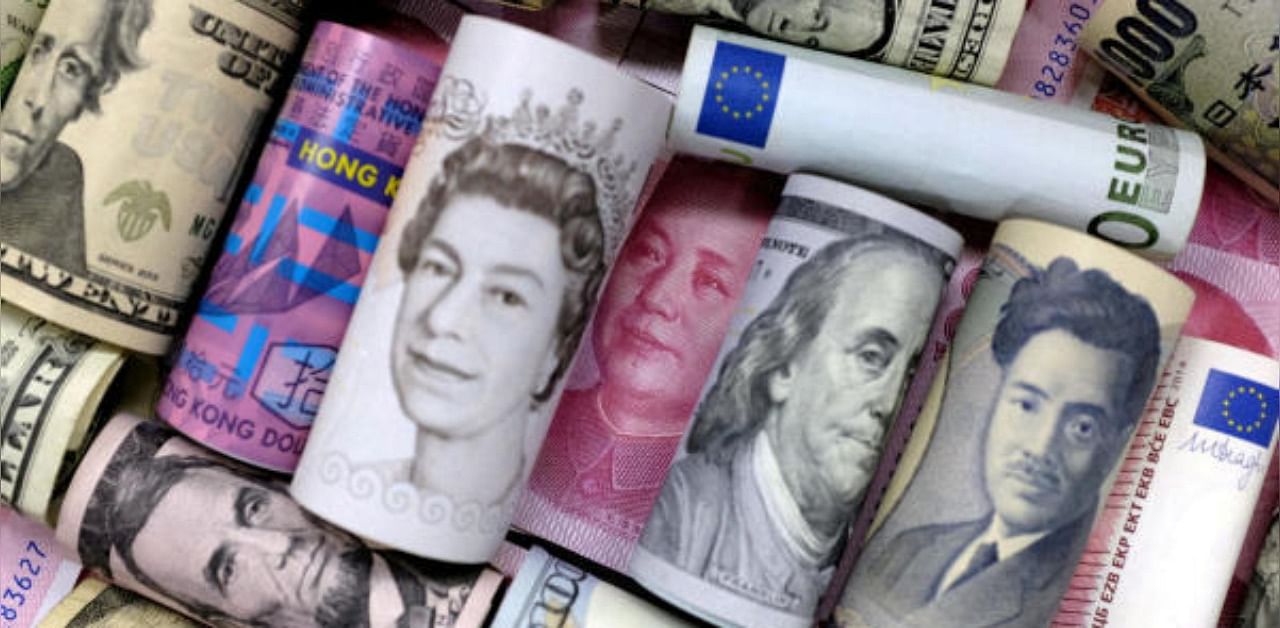
The dollar steadied in holiday-thinned trade on Monday after US jobs data showed job growth slowed further in August, while traders shifted their focus to the European Central Bank's meeting on Thursday.
The US Labour Department report on Friday showed that US employment growth slowed and permanent job losses increased as government funding started running out, raising doubts on the sustainability of the economy's recovery. Still, the jobless rate fell to 8.4 per cent from 10.2 per cent in July.
In the immediate aftermath, the greenback rallied to its highest in a week at 93.242 against a basket of six major currencies on safe-haven buying, but later retraced its gains as US stock indexes recovered.
"The jobs data which showed a decline in the unemployment rate, and a rise in US Treasury yields, are supporting the dollar today," said Masafumi Yamamito, chief currency strategist at Mizuho Securities.
"However, what's weighing on the currency is a huge drop in US stocks (last week)."
The S&P 500 fell 2.3 per cent last week after five consecutive weeks of gains.
The dollar index was little changed on Monday at 92.895. Foreign exchange trading was likely to be subdued as US financial markets are closed for the Labour Day holiday.
Broader sentiment on the dollar remains weak after Federal Reserve Chair Jerome Powell reiterated on Friday that the central bank plans to keep US rates lower for longer.
"We think that the economy's going to need low interest rates, which support economic activity, for an extended period of time ... it will be measured in years," Powell said.
Analysts said a sharp decline in US stocks last week also prompted some traders to adjust their positions on the dollar.
"When stocks become unstable, the yen appreciates. What happens as a result is that a stronger dollar and yen bump into each other, meaning other currencies could weaken," said Minori Uchida, chief currency analyst at MUFG Bank.
The focus this week will be on European Central Bank's policy decision on Thursday. Most analysts don't expect a change in policy stance but are focusing on the message the ECB will deliver on its inflation forecasts.
The ECB meeting comes after the euro marked a two-year high at the beginning of the month.
The common currency, however, quickly retraced after executive board member Philip Lane said last week that the appreciation of the euro "does matter" for monetary policy, highlighting the potential for further easing from the bank.
The euro stood at $1.1834 on Monday.
The British pound fell 0.34 per cent to $1.3235, retreating from its highest level in almost a year on fears over a no-deal Brexit.
Amid an EU-UK trade negotiations impasse, the chances of a no-deal Brexit have risen sharply as negotiations have been threatened by Britain's insistence that it have full autonomy over its state aid plans.
UK Prime Minister Boris Johnson's office released comments on Monday that Britain has set a deadline of Oct. 15, and if none of the free-trade deal is agreed, both sides should "accept that and move on."
Against the yen, the dollar traded at 106.28.
On the data front, the United States has producer prices on Wednesday and consumer price data on Friday, while China's consumer prices will be released on Wednesday.
The yuan was little changed in offshore trade and last fetched 6.8312 per dollar after customs data on Monday indicated that the country's exports marked the strongest gain since March 2019, while imports slumped.
Elsewhere, the Canadian dollar changed hands at C$1.3086. The Bank of Canada is also due to make an interest rate announcement on Wednesday.